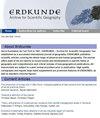新冠肺炎大流行期间旅行的城乡差异:塞尔维亚的案例研究
IF 1.1
4区 社会学
Q3 GEOGRAPHY
引用次数: 0
摘要
在过去两年中,由于流动受到限制,新冠肺炎的传播影响了全球大部分经济和社会生活,尤其是旅游业。疫情造成了不均衡的地区后果。除了个别国家之间感染人数、死亡率和接种疫苗人数的差异外,农村和城市地区之间的差异尤为明显。城市和农村人口在交通基础设施和流动行为方面的根本差异表明,他们在风险感知和未来出行行为方面存在差异。然而,到目前为止,新冠肺炎大流行期间的城乡旅行行为差异几乎没有被探索,本研究旨在帮助填补这一差距。本文的目的是调查疫情影响下城市和农村居民旅行风险认知和旅行行为的变化和差异。分析是基于2021年6月对塞尔维亚399名城市居民和260名农村居民的在线调查数据收集进行的。结果显示,城乡居民在旅行意愿、旅行频率和目的地选择方面存在差异,对国内旅游和短途旅行的偏好也存在差异。本研究可为新冠肺炎疫情期间城乡旅游二分法的未来研究提供指导,并为不同国家和地理区域的城乡差异和旅游比较研究提供参考。本文章由计算机程序翻译,如有差异,请以英文原文为准。
Urban-rural disparities in travel during the COVID-19 pandemic: The case study of Serbia
In the past two years, the spread of the COVID-19 has affected large parts of economic and social life globally, especially the tourism industry, due to the restrictions on mobility. The pandemic caused uneven regional consequences. In addition to the differences in the number of infected persons, the mortality rate, and the number of vaccinated between individual countries, disparities between rural and urban areas are particularly evident. Fundamental differences in transport infrastructure and mobility behavior between urban and rural populations suggest differences in risk perception and future travel behavior. However, urban-rural disparities in travel behavior during the COVID-19 pandemic have hardly been explored so far, and this study aims to help fill this gap. The aim of this paper is to investigate the changes and differences in travel risk perceptions and travel behavior of urban and rural residents under the influence of the pandemic. Analyses were conducted based on an online survey data collection in June 2021 among 399 urban and 260 rural residents of Serbia. The results showed differences in travel intentions, travel frequency, and destination choice between urban and rural residents, as well as a preference for domestic tourism and short-haul travel. This study can serve as a guideline for future research on the urban-rural dichotomy regarding travel during the COVID-19 pandemic and as a reference point for comparative studies on urban-rural differences and tourism in different countries and geographical regions.
求助全文
通过发布文献求助,成功后即可免费获取论文全文。
去求助
来源期刊

Erdkunde
地学-自然地理
CiteScore
2.00
自引率
7.10%
发文量
17
审稿时长
>12 weeks
期刊介绍:
Since foundation by Carl Troll in 1947, ''ERDKUNDE – Archive for Scientific Geography'' has established as a successful international journal of geography. ERDKUNDE publishes scientific articles covering the whole range of physical and human geography. The journal offers state of the art reports on recent trends and developments in specific fields of geography and comprehensive and critical reviews of new geographical publications. All manuscripts are subject to a peer-review procedure prior to publication. High quality cartography and regular large sized supplements are prominent features of ERDKUNDE, as well as standard coloured figures.
 求助内容:
求助内容: 应助结果提醒方式:
应助结果提醒方式:


